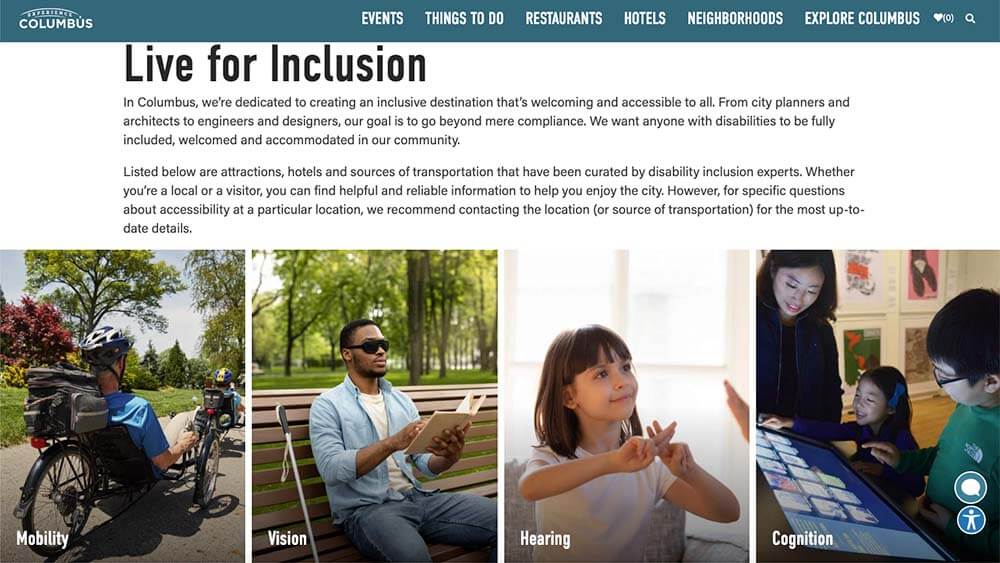
Since outdoor gear company Patagonia declared in 2022, “As of now, Earth is our only shareholder,” other business sectors are beginning to make sustainable strides.
“The Future 100: 2023,” creative agency, consultancy, and technology company Wunderman Thompson’s annual forecast, identifies 100 trends across industries — from culture to technology to travel and hospitality — that will shape the way we live and work this year and beyond.
Convene’s editors each have chosen three trends from Wunderman Thompson’s latest report and connected them to meetings and events. Here are three that resonated with Managing Editor Casey Gale.
Earth as a Stakeholder
“Despite years of shrinking forests, species extinction, and increasingly severe weather, most for-profit businesses have taken only baby steps toward sustainable practices, citing profit-thirsty shareholders,” according to Wunderman Thompson. But many sectors are rising to the occasion to tackle climate change head on, including the events industry, which can become more intentional about its environmental impact in several different ways. From case studies showcasing better food waste strategies to tracking events’ carbon footprint, Convene has covered a number of ways event organizers, venues, and destinations are working together to make sure sustainability is a top priority.
Some sustainability topics are easier to approach than others. The role events play in contributing to air travel emissions, for example, is complicated. And when I spoke with PCMA Groundbreaker Kimberly Lewis, a pioneer in sustainable events who worked with the U.S. Green Building Council (USGBC), she admitted that even more manageable environmental efforts, such as looking at an event’s waste management plan, water and energy savings, carbon footprint, and legacy projects “can be super overwhelming” if an event organizer tries to undertake them all at once. But taking the first step and “aligning around one goal” is all that is needed to take events down a path that treads more lightly on the environment.

Experience Columbus is one of the DMOs that has launched an accessibility page or micro site on their websites.
Accessible Commerce
“Brands are leaving money on the table by failing to make their spaces and services universally accessible,” Wunderman Thompson noted. It’s a no brainer: When more people have access to products and locations, organizations can then turn those people into customers, clients, or members. That’s a major driving force behind Amazon, Apple, Google, and other companies that are working with the University of Illinois’ Speech Accessibility Project, which strives to make voice-recognition technology more effective for people with conditions that impact their speech patterns, such as Parkinson’s disease and cerebral palsy.
In recent years, the events industry has also become more proactive in building accessible events that ultimately benefit not just people who have disabilities or are neurodivergent, but all attendees. This phenomenon is called “the curb-cut effect,” which Deputy Editor Barbara Palmer wrote about in a 2022 Convene piece. The “curb-cut effect” references the many benefits that came from disability activists in the 1970s advocating for mandatory curb-cuts on sidewalks in many locations to help wheelchair users get around easier. This also inadvertently helped parents pushing strollers, skateboarders, and more. The same goes for something like adding captions to recorded sessions — not only does it serve people who are deaf or hard of hearing, but also the 80 percent of hearing people who use captions — me included — simply for easier comprehension. The addition of “quiet zones” to event spaces is the same story — while they’re made for guests with sensory needs, they can also benefit people with mental health needs, who need space to meditate or pray, or who just need an area dedicated to help them find calm in the chaos of a busy event.
Destinations are also recognizing the importance of accessibility. A trip to a new area for those with a disability and without any sort of roadmap to its accessible offerings can range from frustrating to dangerous, and so Visit Lauderdale and Experience Columbus have both expanded their websites to offer guides to the cities’ accessible restaurants, hotels, and attractions.
“I would like to see meeting planners talk more about it, and when they’re visiting destinations, have a more aggressive checklist so that they’re covering all different people’s needs,” Richard Gray, Visit Lauderdale’s senior vice president of inclusion and accessibility told me in an interview last year. “It’s emerging, there’s no doubt about it. We’ve just got to implement change.”

Lisa Ryan
Revolutionary Rest
Hustle culture is over. As seen with the Great Resignation, the pandemic, or “COVID clarity,” as Alex Alonso, chief knowledge officer at SHRM (Society for Human Resource Management) called it, fundamentally changed what people want out of their job — namely, the flexibility to rest and partake in fulfilling hobbies outside of work. During a Convening Leaders 2022 session, Lisa Ryan, founder and chief appreciation strategist at Grategy, a professional gratitude consultancy, spoke about the importance of providing employees with adequate work/life balance.
“Focus on results. As long as a job is getting done, does it matter where, when, or how it’s getting done?” Ryan asked. She provided the example of a roofing association: The company was forced to think about their business differently because they had trouble retaining talent. “They decided to give employees weekends off,” Ryan said. “They put on roofs Monday through Friday, then Saturday and Sunday, the employees could do whatever they wanted to do. Did they lose some business as a result…? Probably. But were they more profitable? Absolutely, because they were actually keeping their employees, [while] all the other roofing companies were making [their employees] work all weekend.”
Casey Gale is managing editor of Convene.
